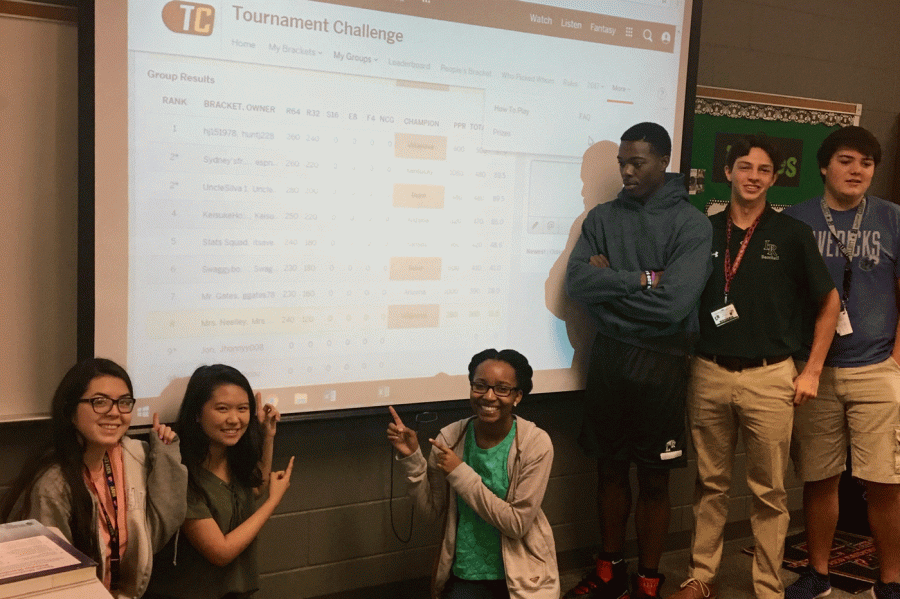AP Stats Catches March Madness
The AP Stats class showing the March Madness Bracket
On any given “A” day, Tiffany Neely’s AP Statistics class can be found calculating samples, scatter plots, working variables, and residual data.
When the NCAA Championship Tournament, otherwise known as March Madness, came around, Mrs. Neely seized the opportunity to turn the bracket tournament into a living, breathing statistics lesson.
“There’s a lot of statistics that goes into sports,” explained Neely. “I was at APSI seminar for AP teachers and one of the teachers said that it was always fun and that students really got into it. They get to see how statistics can be fun, competitive, and interesting. Plus, I love basketball.”
The students signed up for Neely’s private tournament group and each student used statistics and averages of the ranked teams to choose their brackets. The winning student earns a “free” 100% on an exam.
AP Stastistics student, Avery Chen, senior, explained how March Madness has made class more exciting.
“You have to look at the team’s history and their scores. It’s a lot of random probability and it’s just a matter of looking at the statistics from previous games and applying it into the future,” said Chen.
Kennedy Kinnard, senior, believes the tournament challenge has made her pay attention to statistics in the real world.
“It makes statistics interesting because it applies the concepts of what you are learning to basketball,” Kinnard stated. “I started to pay attention to the tournament and started thinking about stats outside of class.”
Lake Ridge Assistant Principal, Gary Gates, joined the AP Statistics group in the tournament challenge as well.
“You learn in stats that every event is an individual event regardless to what happened prior. So when you are looking at a bracket, if you look at the strengths and weaknesses of individual teams based on that scenario, your chances are much better. That’s what you do in stats,” Gates explained.
Participants have also learned that emotion can cloud statistical judgement.
“I picked my brackets based on a mixture of being a fan and how those teams have performed throughout the year. SMU really hurt me and so did Duke, but I’m a fan of those teams. You learn in stats not to let your personal opinion affect how you make decisions,” joked Gates.
Both the students and faculty will find out who wins the “free 100%” prize on Apr. 3.

Editor in Chief, Senior
I am honored to be returning as the Editor in Chief for the 2016-17 LRHS Newspaper. I love photography and I am a competitive...

